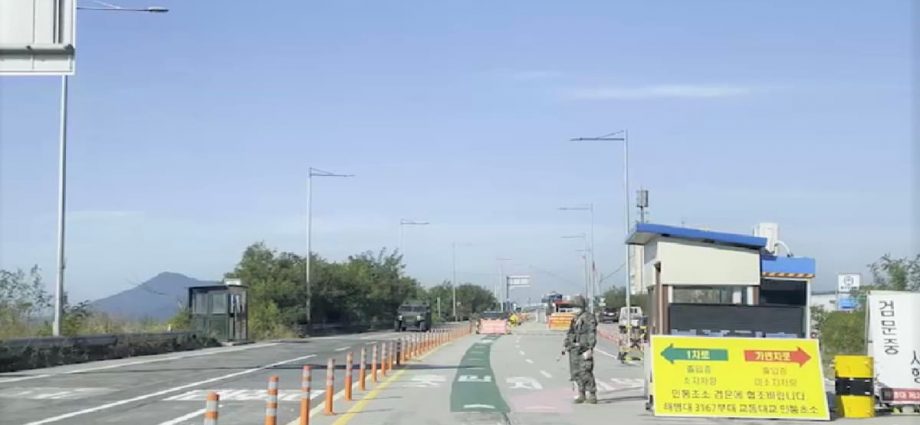
After the end of the Korean War in 1953, the area was designated as part of the Civilian Control Zone, which serves as a restricted area for civilians.
There used to be loudspeakers on both sides, each blaring propaganda announcements over the border. In 2018, they were brought down because the two Koreas agreed to stop all hostile acts against each other.
RESIDENTS WANT FEWER RESTRICTIONS
The loudspeakers are now gone, but the barbed wire remains.
Villagers have been lobbying for its removal, together with the military checkpoints, because it restricts movement and hampers its tourism-driven economy, said Mr Hwang Kyo-Ik, the village head of Gyodong Island.
“Tourists and residents coming to the island feel very uncomfortable. Gyodong Island is fenced up on all sides,” he added. “It is like a chicken coop. We can’t go anywhere near the beach.”
Villagers said the barbed wire is more symbolic than preventive, since North Korea has not set up similar structures on the its side of the border. Part of their fearlessness comes from familiarity – they have lived there their whole lives.

